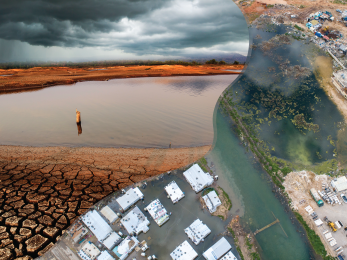PAHAL Program: Strategic Resilience Assessment Report

Promoting Agriculture, Health and Alternative Livelihoods (PAHAL)
The Promoting Agriculture, Health and Alternative Livelihoods (PAHAL) program is a $37 million, five-year USAID initiative designed to achieve food security among vulnerable populations in the hill and mountain regions of Midwestern and Far West Nepal.
Food insecurity in Nepal persists despite billions of dollars in international assistance to the country over the past 10 years. Accordingly, PAHAL takes a resilience approach to achieve and sustain food security, recognizing that limited development aid effectiveness is at least in part a result of the increasing risks and hazards that undermine development gains.
Mercy Corps, the lead partner in the PAHAL consortium, defines resilience as the capacity to learn, cope, adapt and transform in the face of shocks and stresses. Resilience capacities include resources—human, natural, social, financial and physical—or strategies applied towards resilience. Capacities can be absorptive—helping people, households or systems better prepare for or recover from shocks and stresses; adaptive—mitigating the presence, nature and impacts of shocks and stresses over time; or transformative—fundamentally changing wider system dynamics to reduce constraints and enable better coping and adaptation.
In order to develop a resilience-specific program theory of change, the PAHAL team conducted a Strategic Resilience Assessment (STRESS) of target areas. In collaboration with a wide range of actors, STRESS analyzed the dynamic social, ecological and economic systems within which communities are embedded and how these conditions determine vulnerability to shocks and stresses and therefore, food security. The process included scoping workshops, secondary literature review, field tool development, field data collection and finally a series workshops to review and analyze data, write the report and revise PAHAL’s Theory of Change.


